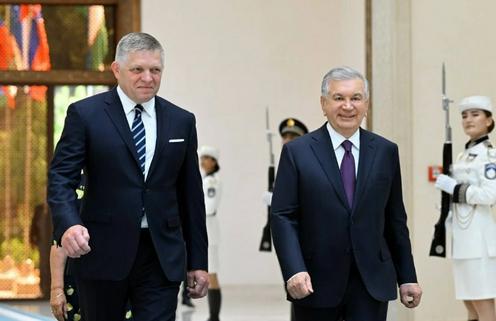Slovak companies have expressed strong interest in launching major defense industry projects in Uzbekistan, including plans to produce ammunition and modernize tanks. The announcement came from Slovak Prime Minister Robert Fico following the Uzbekistan–Slovakia business forum in Tashkent, Gazeta.uz reports.
Fico noted that defense industry cooperation was a key topic during his meeting with Uzbek President Shavkat Mirziyoyev. Both sides acknowledged that defense spending is expected to rise, and agreed that this growth should not come at the expense of other sectors of the economy—making local production capabilities an essential priority.
According to Fico, Slovakia places considerable emphasis on military production. Last year, the country’s defense industry contributed more than €1.1 billion to its gross domestic product, with plans to increase that figure to €1.5 billion this year.
The Slovak prime minister emphasized his country's readiness to invest in joint defense projects with Uzbekistan, including establishing local manufacturing capacity. These would involve assembling ammunition and modernizing Soviet-era T-series tanks and infantry fighting vehicles.
Fico added that Uzbekistan has a large military force that primarily relies on Russian or Soviet-made equipment—conditions that present significant opportunities for Slovak companies.
Economists note that Slovakia has significantly expanded its defense exports in recent years, with the sector reaching €130 billion last year—roughly 1 percent of the nation’s GDP. The country is among Europe’s leading producers of large-caliber ammunition, manufacturing over 120,000 shells annually. Slovakia also produces howitzers and other military equipment.
On June 9, Fico and Mirziyoyev held bilateral talks in Tashkent as part of the Slovak leader’s official visit. The two sides discussed broad avenues for cooperation, including a proposal to establish a venture fund to accelerate IT startups. The meeting concluded with the signing of a Joint Declaration on the Establishment of a Strategic Partnership between the two countries.










